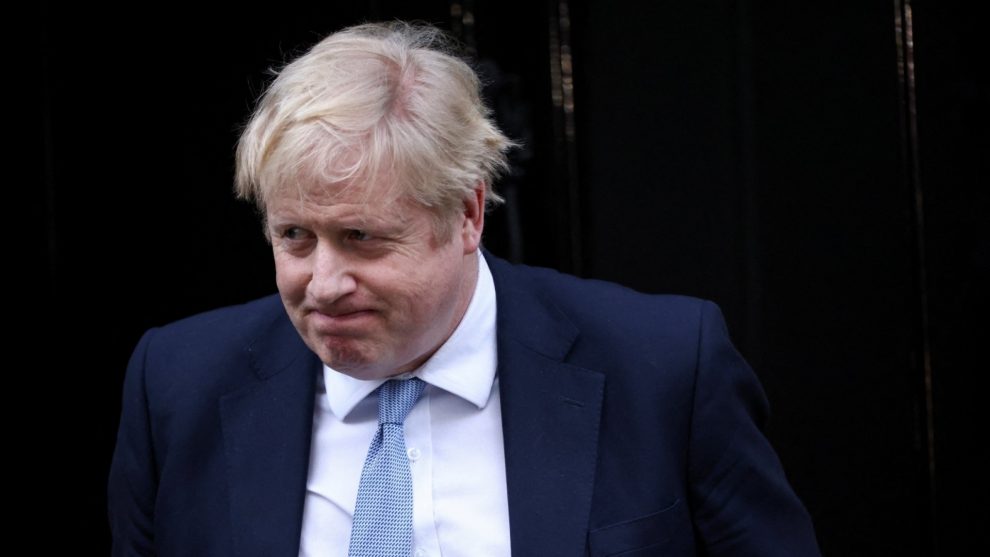ON MONDAY (June 13), the UK Government published a Bill proposing to breach the terms of a binding international treaty the Prime Minister negotiated and took to the country in a General Election as a “fantastic, oven-ready” deal.
The Government cites the Northern Ireland Protocol as its problem’s cause.
THE NORTHERN IRELAND PROTOCOL
The Northern Ireland Protocol is part of the UK’s Withdrawal Agreement with the EU.
Under the Protocol, Northern Ireland is formally outside the EU single market, but EU free movement of goods rules and EU Customs Union rules still apply.
The Protocol ensures no customs checks or controls between Northern Ireland and the rest of the island.
Traders may move goods to Great Britain from the island of Ireland but not from Great Britain to Northern Ireland.
In place of an Ireland/Northern Ireland land border, the Protocol has created a de facto customs border in the Irish Sea, separating Northern Ireland from Great Britain.
Mr Johnson now claims that is unacceptable.
It is an intriguing position for him to adopt.
UK NEGOTIATORS AND PM: ILLITERATE OR DISHONEST?
The Prime Minister and his negotiators insisted on the inclusion of the Northern Ireland Protocol that forms part of the Brexit treaty to replace his predecessor’s “Northern Ireland Backstop”, which he opposed in a series of votes in the Commons when Theresa May was Prime Minister.
The Government’s current position suggests that neither Mr Johnson nor his negotiators understood what they were proposing and signing. If they understood the Treaty and Protocol, they negotiated both in bad faith for domestic political advantage.
And what a political advantage!
In December 2019, Mr Johnson went to the country and won an eighty-seat majority in the Commons, saying his deal would “Get Brexit Done”.
HM Treasury analysis explained some of the implications of the Protocol.
The paper said Northern Ireland would be cut off from whole swathes of the UK Internal Market, would face shortages and price rises in shops and would effectively be severed from the UK’s economic union.
Asked about the report at a press conference, Mr Johnson said: “there will be no checks on goods going from GB to NI, and from NI to GB”.
Within four weeks of Parliament’s return in January 2020, the whole shebang passed the Commons and was hailed as a personal achievement for the PM.
At the time, Mr Johnson said: “At times it felt like we would never cross the Brexit finish line, but we’ve done it.”
Questioned about the Bill, then-Brexit Secretary Stephen Barclay said: “The purpose of this legislation is to implement in domestic law the international agreement we’ve reached.”
Mr Barclay is now the PM’s Chief of Staff and sits in the Cabinet in the non-job of Chancellor of the Duchy of Lancaster.
Fools or knaves: there is no middle ground for Mr Johnson, his negotiators, and Cabinet colleagues.
JUSTIFYING THE UNJUSTIFIABLE
The UK Government claims a legal concept called “the doctrine of necessity” overrides its obligations under international law.
“Necessity” means the Government can breach binding commitments to:
safeguard an essential interest against a peril; provided that
the peril shall be grave and imminent; and
the course of action followed shall be the only way available; and
no other essential interest shall be seriously impaired due to the breach.
An argument for legal necessity is unavailable where the State has (substantially) contributed to the situation of necessity.
The Government runs into direct problems with satisfying any of the above conditions.
The Northern Ireland Protocol consists of several different provisions.
Regarding the argument of necessity, the essential one is Article 16.
Article 16 states that “if the application of this Protocol leads to serious economic, societal or environmental difficulties that are liable to persist, or to diversion of trade, the Union or the United Kingdom may unilaterally take appropriate safeguard measures.
“Such safeguard measures shall be restricted concerning their scope and duration to what is strictly necessary to remedy the situation.
“Priority shall be given to such measures as will least disturb the functioning of this Protocol.”
The Protocol includes a dispute resolution mechanism. The UK Government refused to engage with it and stopped talking to the EU about the Protocol in February this year.
A DUBIOUS APPROACH
It is easier for a camel to pass through the eye of a needle than to find a credible expert legal view supporting the UK Government’s position.
The legal briefing prepared for MPs by the Government does not bear the signature of the lawyer or lawyers who came up with the idea.
Perhaps they were too ashamed.
It’s hard to imagine any lawyer worth their salt arguing the Protocol represents such a threat to the stability of the UK that it is legal to breach the international treaty which created it, yet the threat is not serious enough to trigger the clause within the treaty specifically to deal with such a threat, Article 16.
The Government even went to the trouble of getting the senior treasury counsel, the senior lawyer who advises it on the legality of legislation, to give it advice only on the basis that the Government’s proposals passed the necessity test.
The senior treasury counsel, Sir James Eadie, noted the restriction placed upon him in his advice (which was leaked to the media) and – using lawyerly restraint – implied the Government’s path was, at best, dubious.
WHY BREAK THE PROTOCOL?
Because the DUP, a minority party in the Northern Ireland Assembly, hates it. Mr Johnson is desperate to keep them onside.
It will also play well with his Brexit hardliners, some of whom have become disenchanted with Mr Johnson’s inability to get Brexit done even after he convinced the UK – and his party – he had.
So desperate is Mr Johnson to suck up to them that the DUP is the only party in the Assembly he formally consulted on the decision to tear up the Protocol.
Alternatively, Mr Johnson is so politically weak that the Bill is a gesture to save his skin.
Threatening to tear up the Protocol – or selectively disregarding its “trivial” terms, as Mr Johnson describes them- is the only leverage the UK Government has to persuade the DUP to participate in the devolved Assembly.
Having got what it wanted without bothering with democracy, it is at least as likely as not that the DUP will not play ball.
If the PM’s policy backfires, his lasting contribution to the Union of the United Kingdom of Great Britain and Northern Ireland could be ending it.
















